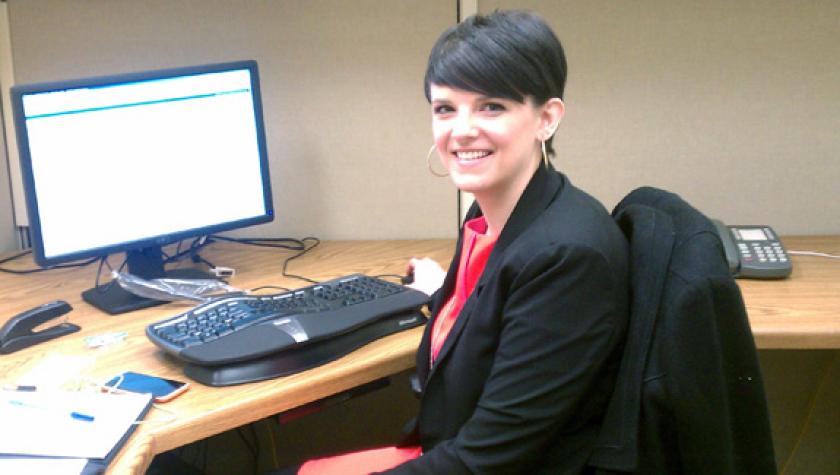
Master's student Jennifer Clark is spending her spring break at the Library of Congress interviewing those involved with the National Digital Information Infrastructure and Preservation Program (NDIIPP). Clark is participating in GSLIS's Alternative Spring Break, an annual program that places master's students in professional settings for a week where they can learn new skills, work with mentors, and gain a deeper understanding of LIS concepts in practice.
As part of her work at NDIIPP, she was asked to contribute a guest post to The Signal, a digital preservation blog hosted by the Library of Congress. The full text of her post is available on The Signal.
Though digital preservation issues have recently grabbed my attention, I have been familiar with many digital preservation problems for years. As a hobby, I regularly participated in National Novel Writing Month, a month-long race that occurs in November to frantically write a novel of 50,000 words in 30 days. To date, I have written four draft novels, and all were born-digital. During those late nights, I became painfully aware of the stability issues that can occur with born-digital objects and how my computer might decide to interact with my precious, burgeoning “Great American Novel.” Without fail, right around 25,000 words, my word processor would corrupt my file. To this day, I have multiple backups of each of my novels in a variety of formats, but only after many heart-stopping incidents.
When I began my degree I started to wonder, if I had so much trouble preserving and stabilizing four relatively small files that held such personal significance, how do we as a profession begin to preserve and stabilize the millions – or billions – of files that make up our national digital heritage? Moreover, though I immensely valued my novels because I had a blood, sweat and tears connection with them, did I feel the same way about digital documents that did not hold a sentimental value, like my tax returns or my lease? How do librarians assist people in assigning value to intangible, impersonal and quickly-fleeting digital objects?